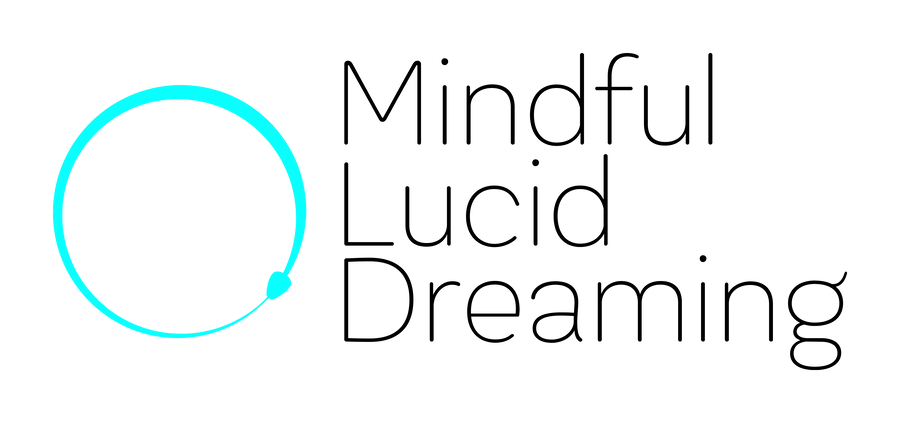Lucidity Studies
Sleep, Dreams, and Mental Health
Lucid Dreaming Therapy
Quiet threat perception and access endless creativity
Nightmares
Cease nightmares and translate new learning to waking life
Insomnia
Cross the borders between wake and sleep with ease and awareness
Mental Health
Explore sleep- and dream-centric pathways to therapeutic growth
Empower Your Therapy Practice
Earn CE Credits
Opportunities for mental health professionals to earn continuing education credits
Enhance Clinical Competencies
Target nightmares and disrupted sleep while addressing broader mental health
Live & On-Demand
Interactive and self-paced trainings for mental health professionals
Nightmares
A critical need in patient care
Lucid Dreaming Therapy
Key Highlights
Evidence-Based Solutions
Lucid dreaming integrates with established treatments like Imagery Rehearsal Therapy to address nightmares, sleep paralysis, dream re-enactment, and broader mental health.
Lucid Dreaming is Not About Control
It’s about tapping into creativity and how mindset shapes perception and reality.
Lucid Dreaming is Accessible
Many clients have psychophysiological traits that predispose them to induce lucid dreaming with minimal training–including more intense REM sleep activity and higher dream recall.
No Lucid Dreams Required
Research supports the benefits of lucid dreaming therapy even without inducing a lucid dream–making it widely accessible.

Lucid Dreaming Therapy
CE Courses
Frequently asked questions
Lucid Dreaming Therapy FAQ
What is lucid dreaming?
Lucid dreaming occurs when you become explicitly aware that you are dreaming while still dreaming. You can state, "I'm dreaming right now." You understand that your physical body is asleep and safe in bed, that the usual rules of the waking world don't apply, and that you can carry out value-driven, pre-sleep intentions. Knowing you're dreaming enables the exploration of experiences that may not be easily accessible while awake. The purpose of lucid dreaming is NOT controlling your dreams, despite common misconceptions. Lucid dreaming is about learning to exercise creative flexibility, higher intentions, and resilience in a safe environment to translate benefits to one's waking life.
What is Lucid Dreaming Therapy?
Lucid Dreaming Therapy (LDT) is a therapeutic approach that incorporates lucid dreaming—a state in which you remember you are dreaming—to target nightmares and REM parasomnias, and other stress-related conditions. This mental model, or "lens" on one's reality, creates a unique opportunity to engage with dream content while knowing the state is malleable and safe, making it ideal for recalibrating maladaptive learning. Skills targeted in LDT—such as metacognizance, psychological flexibility, and prioritizing higher values—can be nurtured to enhance daytime resilience, offering benefits that extend beyond improved sleep to broader aspects of health. LDT may be able to augment standard mental health treatments by providing a rich, experiential platform that honors dreams as a vital component of our emotional and existential landscapes.
Do you have to lucid dream to benefit from Lucid Dreaming Therapy?
No, lucid dreaming is not a prerequisite for benefiting from Lucid Dreaming Therapy. Patients can gain significant advantages by incorporating "lucidity" into imagery rehearsal exercises, which are guided during therapy sessions and assigned as homework. Research indicates that achieving lucidity in dreams is not necessary to experience therapeutic benefits.
However, it is important to note that lucid dreaming may be highly accessible to some therapy clients. Lucid dreaming is linked to increased REM activity and high-level dream recall, which are commonly associated with conditions like PTSD, nightmare disorders, and depression. Many clients can naturally induce lucid dreams with minimal skills training, making them excellent candidates for this therapy.
However, it is important to note that lucid dreaming may be highly accessible to some therapy clients. Lucid dreaming is linked to increased REM activity and high-level dream recall, which are commonly associated with conditions like PTSD, nightmare disorders, and depression. Many clients can naturally induce lucid dreams with minimal skills training, making them excellent candidates for this therapy.
How effective is Lucid Dreaming Therapy for treating nightmares?
According to the American Academy of Sleep Medicine (AASM), Lucid Dreaming Therapy may be used as a treatment option for adults with nightmares, but Imagery Rehearsal Therapy remains the recommended therapy. A few randomized, controlled studies have demonstrated that lucid dreaming therapy can reduce nightmares effectively, but have not shown lucid dreaming to be superior to Imagery Rehearsal Therapy, which has less training demands for the patient and therapist. Still, Imagery Rehearsal Therapy has limitations in effectiveness, and further research is necessary to determine if incorporating lucid dreaming provides additional benefits over Imagery Rehearsal Therapy. By integrating theory, research, and practical knowledge into Lucid Dreaming Therapy, psychotherapists are well-positioned to explore potential mechanisms that could improve outcomes of patients with nightmares beyond established treatments.
CE Approvals by State and Profession
Are your CEs approved for my profession in my state?
Many states recognize CE courses by APA-approved sponsors for a variety of professions to improve competence and skills, and fulfill licensure renewal requirements. To find out if our programs are approved for your specific state, please visit our detailed guide, CE Approvals by State and Profession, where you’ll find information tailored to your licensing board’s requirements.
General Information
What's the difference between Live, Hybrid, and Asynchronous programs?
Live Programs: These are real-time events where instructors and participants interact directly and simultaneously, typically via platforms like Zoom or at in-person venues. Live programs allow for immediate feedback, dynamic interaction, and real-time engagement. Live programs hosted online can provide an environment similar to an in-person class.
Hybrid Programs: Hybrid programs combine elements of both live and asynchronous learning. They might include live sessions for direct interaction and engagement, supplemented by resources that participants can access at their own pace ("on-demand") or within a limited time-frame ("scheduled asynchronous" format). Hybrid programs provide a blend of structured, live instruction and flexible, self-paced learning.
Asynchronous Programs: These are courses you will complete at home using study materials. They do not include real-time interaction with instructors. They may be accessible immediately after registration ("on-demand") or within a set time frame for completion ("scheduled asynchronous") to ensure content remains relevant and that participants are able to apply new knowledge promptly. Asynchronous courses have traditionally been called Homestudy courses; however, we updated the name given that live courses can be taken online at home.
Can you take these CE courses if you are not a psychologist?
Lucid Dreaming Therapy is a fascinating topic with broad appeal. Our CE courses are designed specifically for psychologists, though the material is relevant to a wide range of mental health professionals, including psychotherapists, professional counselors, social workers, psychiatric nurses, and psychiatrists. Check with your licensing board to see if CE credits from APA-approved sponsors can be applied toward your license renewal.
Other professionals, such as researchers, physicians, or wellness practitioners, may find the material interesting, but please keep in mind that the content is tailored for mental health professionals. It is not advised to attempt to implement Lucid Dreaming Therapy outside of your scope of practice.
If you are a non-professional, you may still find the courses valuable; however, be aware that they contain clinical jargon and are designed for a specialized audience, specifically, psychologists. The course may be more suited for high-interest non-professionals (people with marked interest in lucid dreaming and it's therapy applications), rather than clinical populations (eg, patients seeking help with their nightmares).
Refunds & Cancellations
Our refund and cancellation policy corresponds with the features of the program.
Live, Hybrid, and Scheduled Asynchronous Programs
Cancel 30 days before the event for an 80% refund of your registration fee. Cancellations made 7 to 29 days before the event are eligible for a 50% refund. Cancellations under 7 days of the event are non-refundable. If you have purchased a course as part of a bundled package, cancellation and refund policies will apply to the date of the earliest course in your bundle. We are unable to provide refunds for non-attendance or if you fail to complete the required CE assignments. In the rare event that the instructor cancels or reschedules the event due to unforeseen circumstances (eg, illness), registrants have the right to a full refund.
On-Demand Courses
On-demand course purchases are final. We are unable to provide refunds for failing to complete the required CE assignments or criteria.
On-demand course purchases are final. We are unable to provide refunds for failing to complete the required CE assignments or criteria.
Non-Discrimination and Accommodations
We select topics and instructors that promote a respectful and nondiscriminatory learning environment. We are committed to equal access to our programs and will work with you if you have specific needs to accommodate a disability. Our standards include prioritizing the selection of venues that are ADA compliant and the use of video platforms that support automated closed captioning. We will attempt to provide text-based materials to be used with assistive softwares (eg slides or transcripts), when requested.
Do you offer discounts?
We offer a variety of discounts throughout the year on our programs. To stay updated on our latest offers, we encourage you to subscribe to our clinician-focused mailing list. Additionally, exclusive discounts are sometimes shared through our social media channels and on YouTube. Be sure to follow us there to take advantage of these opportunities!
Discounts for students and trainees in mental health programs (pre-licensed) are also available. Students are asked to provide a screenshot of their current semester school schedule to qualify. Please inquire for more details.
Discounts for students and trainees in mental health programs (pre-licensed) are also available. Students are asked to provide a screenshot of their current semester school schedule to qualify. Please inquire for more details.
Furthermore, we do not want to turn away mental health professionals who have a sincere interest due to financial constraints. If affordability is a concern, please feel free to inquire.
Lucidity Sleep Psychiatry is approved by the American Psychological Association to sponsor continuing education for psychologists. Lucidity Sleep Psychiatry maintains responsibility for this program and its content.
Subscribe
Psychotherapist Newsletter
Join the Affiliate Program

